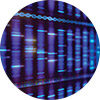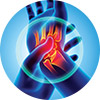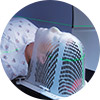
A study led by UC Davis MIND Institute researchers shows that mothers who take recommended amounts of folic acid around conception might reduce their children’s pesticide-related autism risk. The research, published in the journal Environmental Health Perspectives, found children whose moms took 800 or more micrograms (the amount in most prenatal vitamins) had a significantly lower risk of developing autism spectrum disorder — even when their mothers were exposed to household or agricultural pesticides associated with increased risk.

Mouse research suggests that a drug treatment can reverse cognitive deficits and social abnormalities in a rare genetic disorder, 16p11.2 deletion syndrome, which includes symptoms of intellectual disability and autism spectrum disorder. Investigators found that treatment with the drug R-baclofen improved scores on several learning and memory tasks, and on a standard assay of social behavior, in 16p11.2 mutant mice. The parallel studies appeared in Neuropsychopharmacology and were conducted at UC Davis and MIT.

Breast cancer patients often suffer from peripheral neuropathy years after chemotherapy, according to research by UC Davis and other institutions published in the Journal of the National Cancer Institute. In addition, a systematic literature review found only a handful of studies that tracked the condition over the long term, leaving little data for informed decisions. Investigators launched a second study to help remedy the scarcity, mining data from a large federal clinical trial to examine how chemotherapy combinations influenced long-term peripheral neuropathy.

Interventions by peers in community settings can help reduce smoking in youth and young adults, according to a study by tobacco-cessation researchers at UC Davis and other universities published in the Journal of Community Health. Results showed that the most effective tools in the intervention were informational conversations about the consequences of smoking and a “quit kit” of behavior-replacement activities. The intervention can be an important tool in outreach to an age group heavily targeted by industry marketing, authors said.

A UC Davis study in the Annals of Surgical Oncology has demonstrated that radiation therapy before surgery improves overall survival for patients with soft tissue sarcomas. The study of 28,000 sarcoma patients from the National Cancer Databases shows that pre-surgical, or neoadjuvant, radiotherapy allows surgeons to get better margins around tumors, and remove even microscopic cancer tissue more often. Clinicians have been split on whether radiotherapy should be conducted before or after surgery or skipped altogether for these relatively rare tumors.

Current scientific evidence cannot answer important questions about how pesticides and fire-suppression chemicals affect wildfire smoke and the health of those who breathe it, UC Davis graduate students concluded in a review published in Current Topics in Toxicology. The researchers found there are few studies on the short- and long-term health effects of wildfire smoke, and also noted that most studies also don’t account for the complexity of smoke composition.

